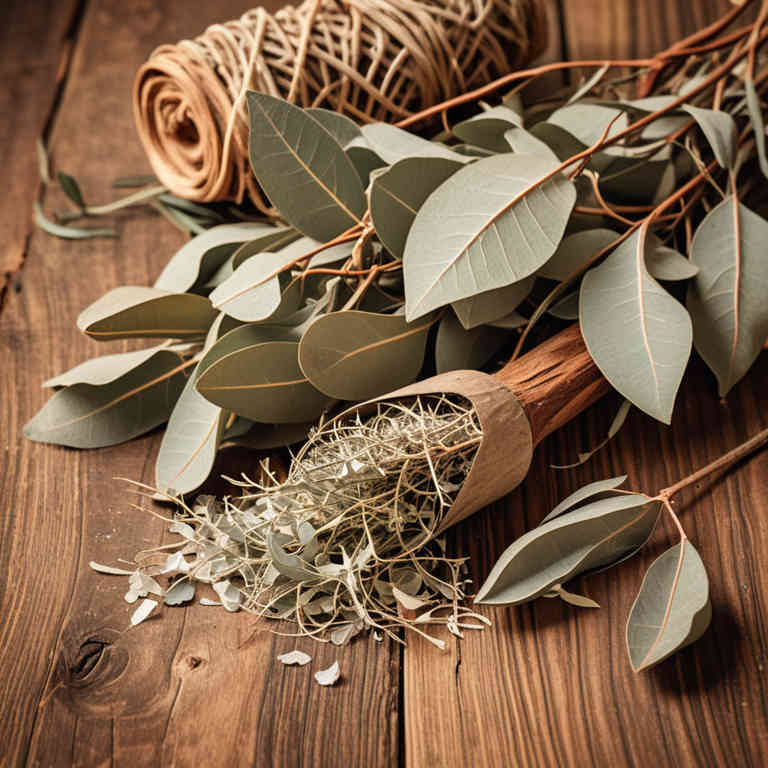Eucalyptus globulus mucillage for medicinal use

Eucalyptus globulus mucillage is a viscous, sticky substance derived from the bark of the eucalyptus tree, primarily *Eucalyptus globulus*, commonly known as the blue gum tree.
It is obtained through a process called mucilage extraction, which involves soaking the bark in water to release the natural gummy substance. In herbalism, this preparation is valued for its soothing and demulcent properties, making it useful for treating respiratory conditions and skin irritations. It is often used in poultices, salves, or as a base for other herbal formulations.
Its ability to coat and protect mucous membranes makes it a popular remedy for coughs, sore throats, and inflamed skin.
Uses
Eucalyptus globulus mucillage has been used to treat respiratory conditions, such as coughs, colds, and bronchitis, for centuries.
Historically, Indigenous Australian communities utilized the plant for its healing properties, applying it topically or using it in steam inhalations. In traditional medicine, it was also valued for its ability to relieve congestion and soothe sore throats. Modern applications include its use in herbal remedies and as an ingredient in expectorants and topical ointments.
Today, it is widely recognized for its antimicrobial and anti-inflammatory properties, supporting its continued use in both traditional and alternative medicine practices.
Benefits
Eucalyptus globulus mucillage has health benefits such as reducing respiratory congestion, soothing sore throats, and supporting immune function.
It is commonly used in herbal remedies to alleviate symptoms of colds and flu due to its antimicrobial and anti-inflammatory properties. The mucilage content helps to coat and protect the mucous membranes, providing relief from irritation. It may also aid in digestion by promoting healthy gut function and reducing inflammation in the digestive tract.
This natural preparation is valued for its soothing effects and traditional use in supporting overall wellness.
Constituents
Eucalyptus globulus mucillage active constituents include eucalyptol (1,8-cineole), terpenoids, flavonoids, and tannins.
These components contribute to its anti-inflammatory, antimicrobial, and expectorant properties. Eucalyptol is the primary active compound responsible for the mucilage's soothing and decongestant effects. The mucilage also contains mucilaginous polysaccharides that help in coating and protecting the mucous membranes.
This preparation is commonly used to alleviate symptoms of respiratory tract infections and digestive discomfort due to its demulcent and mild antiseptic actions.
Preparation
To make Eucalyptus globulus mucillage, first gather fresh or dried leaves of Eucalyptus globulus, commonly known as Australian tea tree.
Wash the leaves thoroughly and chop them into small pieces to increase surface area for extraction. Place the chopped leaves in a pot and add enough water to cover them by about an inch. Bring the mixture to a gentle boil, then reduce the heat and let it simmer for approximately 30 minutes.
Strain the liquid through a fine mesh strainer or cheesecloth to collect the mucilage, which will settle at the bottom, and allow it to cool before use.
Side Effects
Eucalyptus globulus mucillage may lead to gastrointestinal discomfort, including nausea, vomiting, and diarrhea, due to its potent phytochemical content.
It can also cause allergic reactions in individuals sensitive to eucalyptus, manifesting as skin rashes, itching, or respiratory symptoms. Prolonged use may result in liver toxicity, as some components of the mucilage are metabolized by the liver. High doses might lead to central nervous system effects such as dizziness or confusion.
It is important to consult a healthcare professional before using this preparation, especially for individuals with pre-existing medical conditions or those taking other medications.